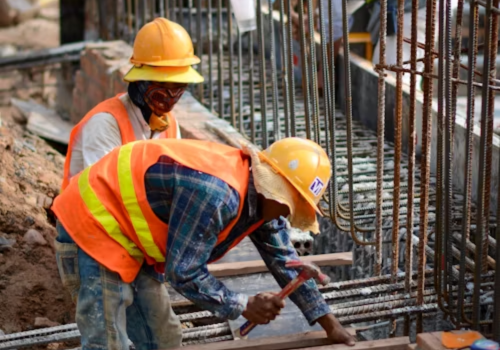Turner-Kokosing JV Files Lawsuit Over $1B Battery Facility Project

A joint venture between Turner Construction and Kokosing Industrial has taken legal action against battery materials manufacturer Ascend Elements, claiming $138 million in unpaid fees for work completed on the company’s $1 billion Apex 1 project in Hopkinsville, Kentucky. The lawsuit, filed on February 14 in Christian County Circuit Court, alleges that Ascend has failed to compensate the JV for work performed up until December.
In addition to Ascend, the suit names 19 other stakeholders as co-defendants, many of whom are tied to mechanics liens. The JV claims Ascend breached contractual agreements, unjustly enriched itself, and violated Kentucky’s Fairness in Construction Act. Through the legal proceedings, the contractors aim to enforce their liens, secure a jury trial, and obtain compensation for their efforts.
Project Overview and Dispute Details
The Apex 1 facility, spanning 140 acres, is poised to become North America’s first electric vehicle battery cathode precursor manufacturing site, essential for EV battery production. Massachusetts-based Ascend Elements spearheads the project, which receives partial funding from the $1.2 trillion Infrastructure Investment and Jobs Act. The U.S. Department of Energy has also awarded Ascend two grants totaling $480 million to support the initiative.
.jpg)
Turner, headquartered in New York City, and Kokosing, based in Westerville, Ohio, were awarded the project in December 2022. The design work was handled by Toledo, Ohio-based SSOE Group. However, since the last day of active work at the site, payment disputes have escalated into a legal confrontation.
Chris McFadden, Turner’s vice president of communications and marketing, emphasized the JV’s commitment to the project’s mission, stating:
“The team’s dedication to Ascend and to the goals and mission of the project led us to continue work and incur millions of dollars of costs.”
On the other hand, Ascend Elements maintains that it remains committed to paying for legitimate work but is reviewing the scope of work completed. Thomas Frey, senior director of marketing and communications for Ascend, noted:
“We are prepared to pay for all authorized and legitimate work performed, but we are also committed to being responsible stewards of both public and private funds.”
He further explained that Ascend is currently conducting a review of Turner-Kokosing’s work but declined to specify what triggered this reassessment.
Project Delays and Future Plans
The construction of Apex 1 has been on hold since late 2024, and Ascend now expects to restart work in the third quarter of 2025, targeting an operational launch by Q3 2026. As part of its reassessment, Ascend is also considering engaging other contractors for the project’s completion.
The lawsuit adds another layer of complexity to an already ambitious project, raising concerns about potential delays and financial setbacks. While the dispute unfolds in court, the outcome could set a precedent for how large-scale, publicly funded infrastructure projects handle financial disagreements between developers and contractors.
Originally reported by Matthew Thibault in Construction Dive.
The smartest construction companies in the industry already get their news from us.
If you want to be on the winning team, you need to know what they know.
Our library of marketing materials is tailored to help construction firms like yours. Use it to benchmark your performance, identify opportunities, stay up-to-date on trends, and make strategic business decisions.
Join Our Community






